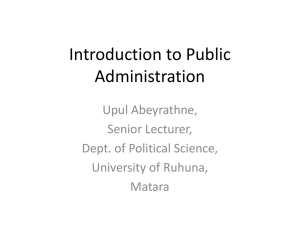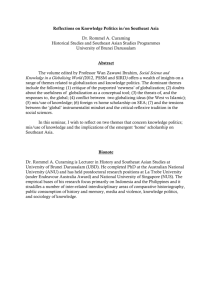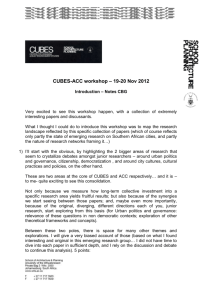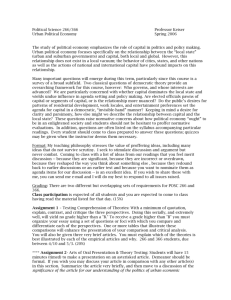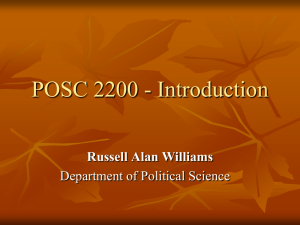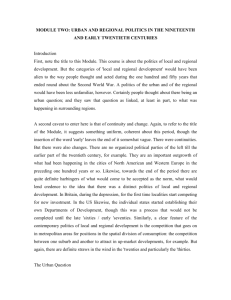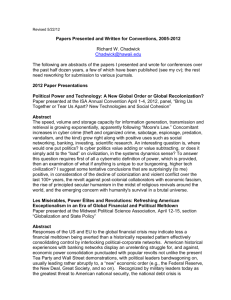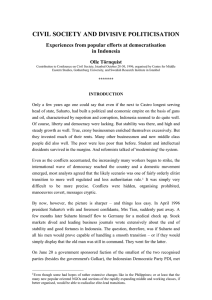1 - School of Politics and International Relations
advertisement
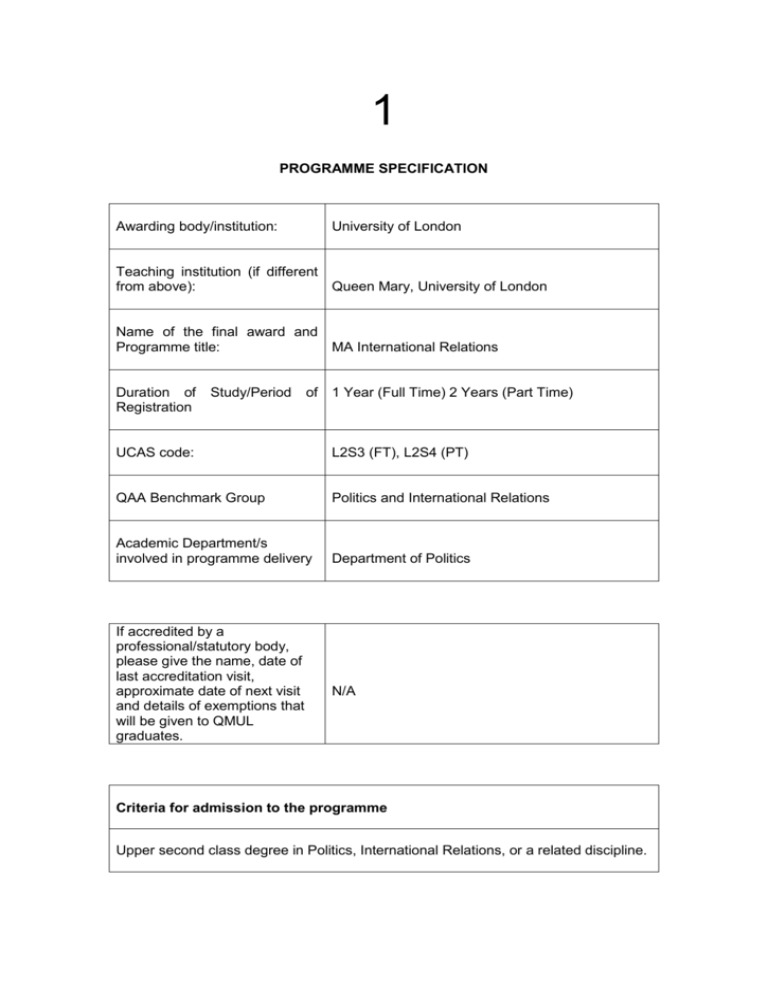
1 PROGRAMME SPECIFICATION Awarding body/institution: University of London Teaching institution (if different from above): Queen Mary, University of London Name of the final award and Programme title: MA International Relations Duration of Registration Study/Period of 1 Year (Full Time) 2 Years (Part Time) UCAS code: L2S3 (FT), L2S4 (PT) QAA Benchmark Group Politics and International Relations Academic Department/s involved in programme delivery Department of Politics If accredited by a professional/statutory body, please give the name, date of last accreditation visit, approximate date of next visit and details of exemptions that will be given to QMUL graduates. N/A Criteria for admission to the programme Upper second class degree in Politics, International Relations, or a related discipline. Aims of the programme The aims of the MA programme in IR are: To introduce students to the dominant theoretical paradigms used in the analysis of International Relations. To enable students to apply the various approaches and paradigms to current and historic events and issues in international politics. To develop a critical awareness of approaches to the study of International Relations Learning outcomes for the programme On successful completion of the programme, students should be able to: Articulate, both orally and in writing, a theoretical critique of the dominant theoretical paradigms used in the analysis of International Relations. Demonstrate an ability to apply such paradigms to current and historic events and issues in international politics. Demonstrate an understanding of appropriate methodologies in the study of International Relations, and to undertake a piece of extended research and analysis. Teaching, learning and assessment strategies The programme will be delivered through a combination of lectures and seminars and individual tutorials. Assessment will be by essay and examination. Assessment details: Theories of International Relations: Essay (50%); Other Coursework (50%) there may be some variation in the assessment for particular options offered across the Department and Faculty. Programme structure(s) and requirements, levels and modules Students enrolling on this MA programme will take the following core module, worth 30 credits: POLM023 Theories of International Relations Students will then choose 3 options, worth 90 credits each from the two lists of options, below. They must choose at least one of the (core) options from list A and a maximum of two (general) options from list B List A – Core Options: POLM026 Globalization and the International Political Economy of Development POLM027 International Security: War and Peace in a Global Context POLM028 Globalisation and International Relations List B – General Options POLM014 Democracy in Plural Societies POLM015 Democratisation and State Autonomy in the Middle East GEG7109 Empire, Race and Immigration POLM011 Global and Comparative Politics GEG7110 Globalisation and Development in Practice POLM035 Ideas and Power in Spanish America 1512 – Now POLM003 Implementation and Evaluation POLM002 International Public Management POLM012 Issues in Democratisation POLM008 Migrants, Diasporas and Law 1 POLM009 Migrants, Diasporas and Law 2 POLM005 Typologies and Theories of Migration 1 POLM006 Typologies and Theories of Migration 2 POLM016 Nationalism, Democracy and Cosmopolitanism POLM019 Policy Analysis for the Developing World POLM013 The Politics of Media GEG7114 Understanding Globalization and Development 1 GEG7114 Understanding Globalization and Development 2 Students will then prepare a 12-15,000 word dissertation (worth 4 CUs) Quality assurance mechanism (please include details of: SSLC meetings, student feedback mechanisms, personal tutor arrangements, programme induction, programme review and monitoring.) Students on the programme will elect a representative to serve on the SSLC. Individual tutorials with a member of academic staff will be offered as part of the programme in which any issues of an academic or personal nature may be discussed. All post-graduate students will receive a full Departmental induction at the start of the programme, as well as an introduction and induction to the College. Specific facilities will be offered to international and overseas students enrolled on the programme. Employers Links Please provide details of any links with employers e.g. • Details of advisory panels that include current or potential employers; • Organisations that regularly employ graduates from this programme and the roles that graduates undertake. • Student prizes donated by organisations that may offer employment to graduates from this programme. If there are no links with employers consider the learning outcomes and transferable skills and explain how these might be used to inform employers about the qualities and skills a graduate from this programme might be expected to have. Students completing this programme successfully will acquire a number of transferable skills that will be of value in a research career, whether in academia or beyond. These include: An ability to present work and research findings in an appropriate and accessible way. To deliver effective oral presentations, including the use of visual aids To meet deadlines for work and to plan and organise their work efficiently and productively. Person Completing Specification Programme Patricia Owens Person responsible for management of programme Patricia Owens Date programme specification agreed by Department or teaching and learning committee Date of approval by Faculty Board/SMD Education Board 7 April 2009 Date of update/amendment
